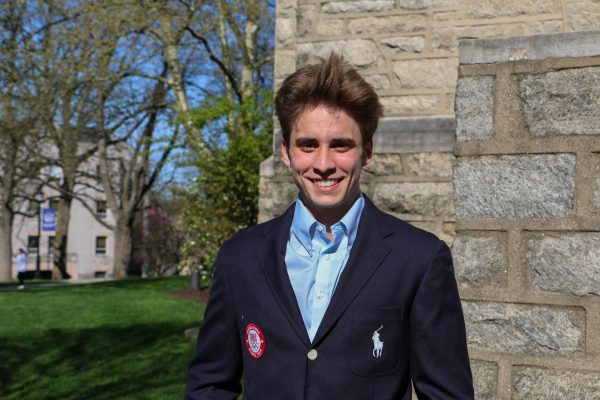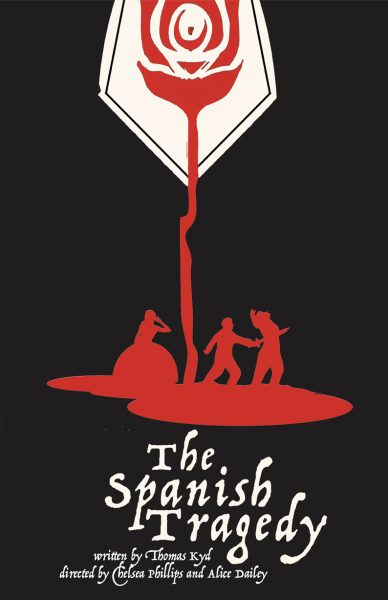Road to redemption
March 10, 2010
Tim Donaghy is an addict and a traitor to his profession. He disgraced himself, his family, Villanova and the NBA, and he had to tell his father all of that before anyone else did.
On Father’s Day of 2007, he made the call. Instantly, his father, Gerry, could tell there was something amiss with Tim. He sounded nervous and distracted and fumbled around with his words.
Tim called to admit something a son would never want to tell his father. He was about to confess that he had a gambling addiction and was probably going to jail for it.
But that was only half the story, and it was the second part of his confession that made the call even tougher for Tim. While refereeing in the NBA, Tim had gambled on games he officiated.
As a father, Gerry would be hurt enough, but it was their other connection that had Tim worried. His father was a basketball referee, too.
“It was harder to tell him than my wife because of everything that my father had built over the years in the referee fraternity,” Tim says.
How would a father, whom he respected so much, deal with the fact that his son had tarnished everything he stood for?
He wasn’t sure, but telling him was the first step on what has been a long path to redemption, and he needed his father by his side.
“One thing that I would always tell him is that you can’t change the past,” says Father Rob Hagan, a classmate of Tim’s at both Cardinal O’Hara High School and Villanova, who has become a close family friend. “What is important is how you respond and move forward.”
As he prepared to move forward, Tim remembered what his father stood for. He describes him as the “standard of integrity.” Gerry was an official for 34 years, 29 of which came at the college level. He worked four Final Fours.
“Gerry is a respected father and a respected referee,” Father Rob says. “As a family and a community, he was looked up to.”
One of those who had looked up to him was Tim. Since the age of sevem, Tim had been exposed to the world of basketball watching his father officiate games. As his father officiated, Tim sat in the stands and watched his every move. It was a chance for a son to bond with his father, and the first step toward following in his footsteps.
“He enjoyed it,” Gerry says. “He sat in the stands, and we’d talk about it on the way home. He was really interested in basketball in those days.”
That interest never waned. On recommendation from his mother, Tim pursued a job as a basketball referee after graduating from Villanova in 1989. By 1994, he had reached the summit: he was an NBA referee.
In the 13 years between reaching the NBA and placing that call to his father, Tim developed a gambling addiction. In 1998 he bet $20 a hole in golf with a friend he knew from his rival high school. Just a few months later, he was winning or losing $10,000 regularly in cards. By 2002, he moved on to sports gambling. A year later it was NBA games; during the 2005-’06 season, he started gambling on games he officiated. In 2007, he was caught and faced federal charges.
Just a handful of people knew about his secret life when Tim placed the call to his father, and Gerry was not one of them. It was difficult enough to tell him as a son, but being a fellow referee complicated things further.
“I don’t know whether I can explain that to anybody,” Gerry says. “It was very hard for me to understand and accept how any referee could do that.”
At the conclusion of Tim’s confession, Gerry had one question for his son. Did he fix games? To his relief, Tim said no.
Gerry told his son that as long as the games weren’t fixed, everything would be all right and that they would get through this.
But what if they had been?
“I probably would have reacted a lot differently,” Gerry says.
It wasn’t long before the gambling in his secret life took over.
“For me it was getting into that next game,” Tim says. “It was about the secret life and the euphoria of placing bets and finding out that you had won.”
While Tim won his fair share of bets, picking 70-80 percent of his NBA games correctly, the money became less of a factor for him. It was the feeling he got from doing it. What started as a hobby for him had become an addiction.
“When you are addicted to drugs and alcohol it gives you a high,” Tim says. “When you are a gambler placing and winning bets, it gives you that same high.”
Tim began to hurt those close to him. He started lying to his wife, telling her that he was held up when he was really off to Atlantic City to head to the casino. He called up fellow NBA referees he was friends with to find out inside information about games so that he could bet on them.
Eventually, he had his family’s life threatened by the mob if he didn’t relay betting information about games he was officiating.
“I think it was a situation where I needed to get caught to stop,” Tim says. “I like to say that I would have come to the realization, but I tried to stop so many times before, and I was unable to do it.”
Tim’s connection to the mob was his downfall, as the FBI became aware of him through a separate investigation.
It was all over for Tim. His gambling and secret life would cost him his job, his reputation, his freedom and his family. His name became synonymous with scandal.
“All of us make mistakes,” Father Rob says. “Few of us have our mistakes aired on the world stage.”
On July 28, 2008, Tim sat in his father’s office on the eve of his judgment day. While tomorrow he would have to face the consequences of his actions, this night would be spent with his father and his mother Joan at their house in Sea Isle City, N.J.
Originally, he had no plans of being there. He made his own choices, and he would face them alone. But his parents wouldn’t have it.
“He is my son,” Gerry says. “Everybody is entitled to a mistake. We all make them. When that happens, the first place that you look to is your wife and your parents.”
It was 13 months since Tim had called his father to confess his mistakes. Since that time when his gambling had become public, the press and the NBA had vilified him and he had met regularly with the FBI.
The NBA disowned him, and he was described by NBA commissioner David Stern as a “rogue” referee. He was a mainstay on the back of the New York tabloids, and any reputation he once had was destroyed. He was the Benedict Arnold of basketball.
Through it all, Gerry, now known by the public less for his own officiating and more for being the father of the disgraced referee, was there for him.
“I never thought about the consequences that would be thrown upon him while doing this,” Tim says. “Obviously it was something devastating, but he stood by me the whole way.”
As Tim sat in his father’s office, he reached for the phone. It was the next step on his journey back from the bottom. He needed to be a father himself.
He dialed the number of his four daughters. For years, the purpose of phone calls like these was to say he would be late for dinner. What he wouldn’t tell them about was the casino or card game holding him up.
However, during the investigation, his wife Kim divorced him and the four girls stayed with her.
“There’s no doubt that being married and losing your family is the most painful thing,” Tim says.
He talked to his four daughters while he sat in his father’s chair, wishing they were there with him. His relationship with them had been limited to occasional visits and a series of phone calls. This was the last time they would speak before his sentencing, and Tim was making up both for time lost in the past and for time that would be lost while he was in prison.
After they spoke, he joined his parents, who were waiting at the dinner table for him. Over a thousand miles away in Florida, his daughters waited, too.
Now Tim waits. He waits for a chance to restore his name, a chance to move on in life and a chance to be with his daughters.
Tim was released from prison on Nov. 4, 2009. He was sent to prison after pleading guilty to felony charges of wire fraud and conspiracy to transmit wagering information. He was isolated from the world for 15 months. Now he lives alone in Florida.
He spends most of his time doing interviews to promote his book, “Personal Foul: A First-Person Account of the Scandal That Rocked the NBA,” in which he details his fall and the shady nature of the NBA, while also trying to explain himself.
“There were a lot of misconceptions of what I said,” Tim says. “That is why I sought out to write the book.”
He has also tried to use his experiences with addiction to help others heading down the same path. This month he will appear in Sacramento as the keynote speaker for an event that will be attended by 250 gambling therapists and addiction specialists.
“I think I’m setting myself up to share my story,” Tim says. “There is a lesson here that I can share.”
Both the book and sharing his experiences are two more steps toward trying to redeem himself while facing his demons.
“I think I’m certainly facing them, and it will be decided over a period of time whether I conquered them or not,” Tim says.
Tim can’t erase the past. People will always remember him for gambling on NBA games he officiated. Public opinion will always be against him.
Instead, he focuses on the smaller things: trying to sway others from a similar path and concentrating on family.
Helping Tim with the latter are Gerry and Joan. They speak with him almost every day. If any good has come out of Tim’s gambling, he believes it is the relationship with his parents that he once lost sight of.
“I don’t think he ever said that he didn’t have a family that loved him, but he didn’t value and treasure it the way we should,” Rob says.
First and foremost in Tim’s life now are his four growing daughters. Though they are separated from him, he is committed to always being there for them.
“I think he realizes now that life isn’t as rosy as he thought it was,” Gerry says. “He was making a nice big salary with a big house in Florida. When everything comes crashing down, the only things that you realize you have are your kids.”
Two decades ago, Tim set out on a path to emulate his father by becoming a referee. Now, he’s on a longer and far more difficult one, but the goal remains the same. He wants to be like his father.











